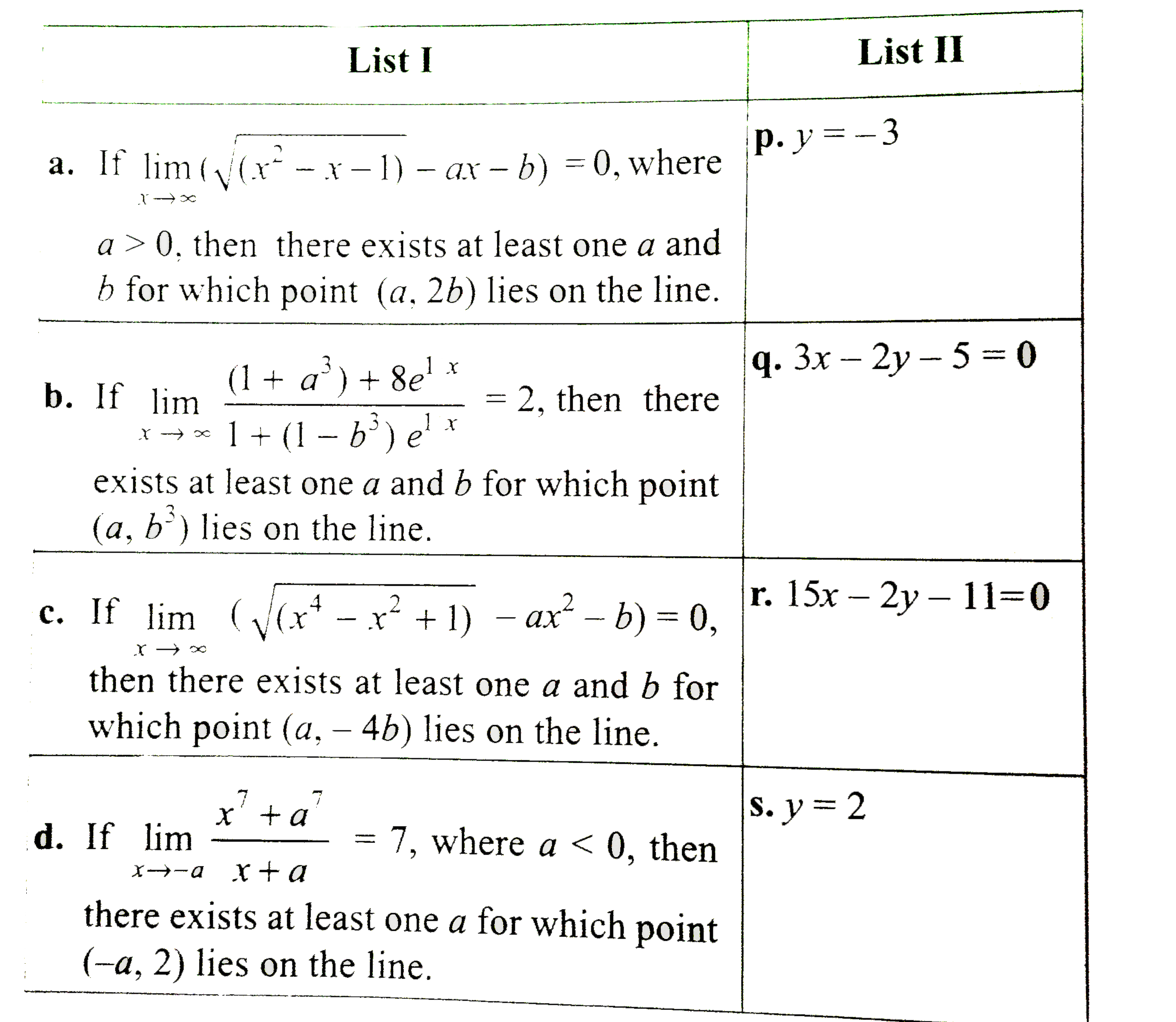Match the following lists:

Text Solution
The correct Answer is:a→q;b→p,q,r;c→r,s;d→r,s.
a. Hence, a>0. Therfore.
limx→∞(√(x2−x+1)−ax−b)(√x2−x+1)+ax+b)(√(x2−x+1)+ax+b)
=0
or limx→∞(x2−x+1)−(ax+b)2√(x2−x+1)+ax+b=0
or limx→∞(1−a2)x2−(1+2ab)x+(1−b2)√(x2−x+1)+ax+b=0
or limx→∞(1−a2)x−(1+2ab)+(1−b2)x√1−1x+1x2+a+bx=0
This is possible only when
1−a2=0 and 1+2ab=0
∴ a=±1
or a=1 (∵a>0) (1)
∴ b=−1/2
∴ (a,2b)≡(1,−1)
b. Divide numerator and denominator by e1/x. Then,
limx→∞(1+a3)e−1x+8e−1x+(1−b3)=2
or 0+80+1−b3=2
or 1−b3=4
∴ b3=−3 or b=−31/3
Then, a∈R. Therefore,
(a,b3)≡(a,−3)
c. limx→∞(√(x4−x2+1)−ax2−b)=0
Put s=1t.Then
limt→0(√(1t4−1t2+1)−at2−b)=0
or limt→0√(1−t2+t4)−a−bt2t2=0 (1)
Since R.H.S. is finite, numerator must be equal to 0 at t→0.
Therefore,1−a=0 or a=1.
From equation (1),
limt→0√(1−t2+t4)−1−bt2t2=0
limt→0(−1+t2)⎛⎜⎝(1−t2+t4)1/2−(1)1/2(1−t2+t4)−1⎞⎟⎠=b
or (−1)(12)=b or a=1,b=−12 or (a,−4b)≡(1,2)
d. limx→−ax7−(−a)7x−(−a)=7 or 7a6=7 or a6=1 or a=−1
|
Updated on:21/07/2023
Topper's Solved these Questions
- BOOK - CENGAGECHAPTER - LIMITSEXERCISE - Exercise (Numerical)23videos
LIMITS
- BOOK - CENGAGECHAPTER - LIMITSEXERCISE - JEE Main Previous Year8videos
LIMITS
- BOOK - CENGAGECHAPTER - LIMITSEXERCISE - Exercise (Comprehension)20videos
LIMITS
- BOOK - CENGAGECHAPTER - JEE 2019EXERCISE - Chapter 109videos
JEE 2019
- BOOK - CENGAGECHAPTER - LINEAR COMBINATION OF VECTORS, DEPENDENT AND INDEPENDENT VECTORSEXERCISE - DPP 1.210videos
LINEAR COMBINATION OF VECTORS, DEPENDENT AND INDEPENDENT VECTORS

